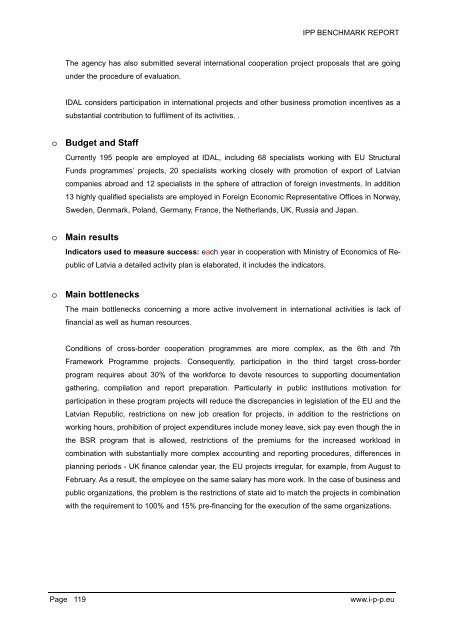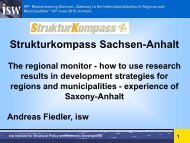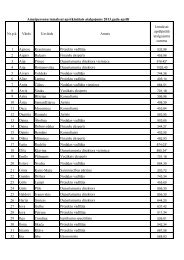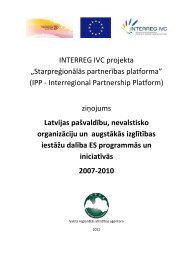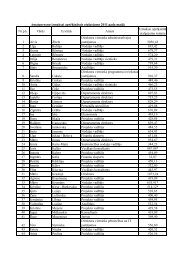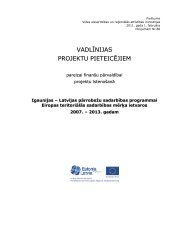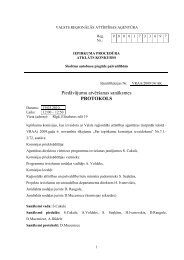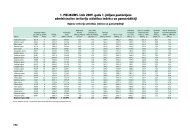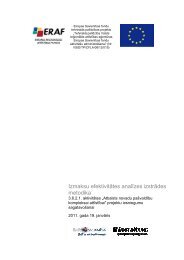Benchmark Study 1
Benchmark Study 1
Benchmark Study 1
You also want an ePaper? Increase the reach of your titles
YUMPU automatically turns print PDFs into web optimized ePapers that Google loves.
IPP BENCHMARK REPORT<br />
The agency has also submitted several international cooperation project proposals that are going<br />
under the procedure of evaluation.<br />
IDAL considers participation in international projects and other business promotion incentives as a<br />
substantial contribution to fulfilment of its activities. .<br />
o Budget and Staff<br />
Currently 195 people are employed at IDAL, including 68 specialists working with EU Structural<br />
Funds programmes’ projects, 20 specialists working closely with promotion of export of Latvian<br />
companies abroad and 12 specialists in the sphere of attraction of foreign investments. In addition<br />
13 highly qualified specialists are employed in Foreign Economic Representative Offices in Norway,<br />
Sweden, Denmark, Poland, Germany, France, the Netherlands, UK, Russia and Japan.<br />
o Main results<br />
Indicators used to measure success: each year in cooperation with Ministry of Economics of Republic<br />
of Latvia a detailed activity plan is elaborated, it includes the indicators.<br />
o Main bottlenecks<br />
The main bottlenecks concerning a more active involvement in international activities is lack of<br />
financial as well as human resources.<br />
Conditions of cross-border cooperation programmes are more complex, as the 6th and 7th<br />
Framework Programme projects. Consequently, participation in the third target cross-border<br />
program requires about 30% of the workforce to devote resources to supporting documentation<br />
gathering, compilation and report preparation. Particularly in public institutions motivation for<br />
participation in these program projects will reduce the discrepancies in legislation of the EU and the<br />
Latvian Republic, restrictions on new job creation for projects, in addition to the restrictions on<br />
working hours, prohibition of project expenditures include money leave, sick pay even though the in<br />
the BSR program that is allowed, restrictions of the premiums for the increased workload in<br />
combination with substantially more complex accounting and reporting procedures, differences in<br />
planning periods - UK finance calendar year, the EU projects irregular, for example, from August to<br />
February. As a result, the employee on the same salary has more work. In the case of business and<br />
public organizations, the problem is the restrictions of state aid to match the projects in combination<br />
with the requirement to 100% and 15% pre-financing for the execution of the same organizations.<br />
Page 119<br />
www.i-p-p.eu


